If there were one thing the pandemic taught us, it would be that “ the world can thrive sufficiently on online businesses. During the pandemic, while most businesses were forced to close down and some were on the brink of collapse, most digitally enabled businesses saw it as fuel to surge massively.
✅ Chief among these digitally-enabled businesses is e-commerce stores. In the US alone, e-commerce sales grew by 14.2%. That is approximately $870.78 billion in cash value. Although we have put behind us the pandemic, the paradigm shift in our perception of business and how they are conducted have changed significantly. And we are becoming more in tune with transacting and shopping online.
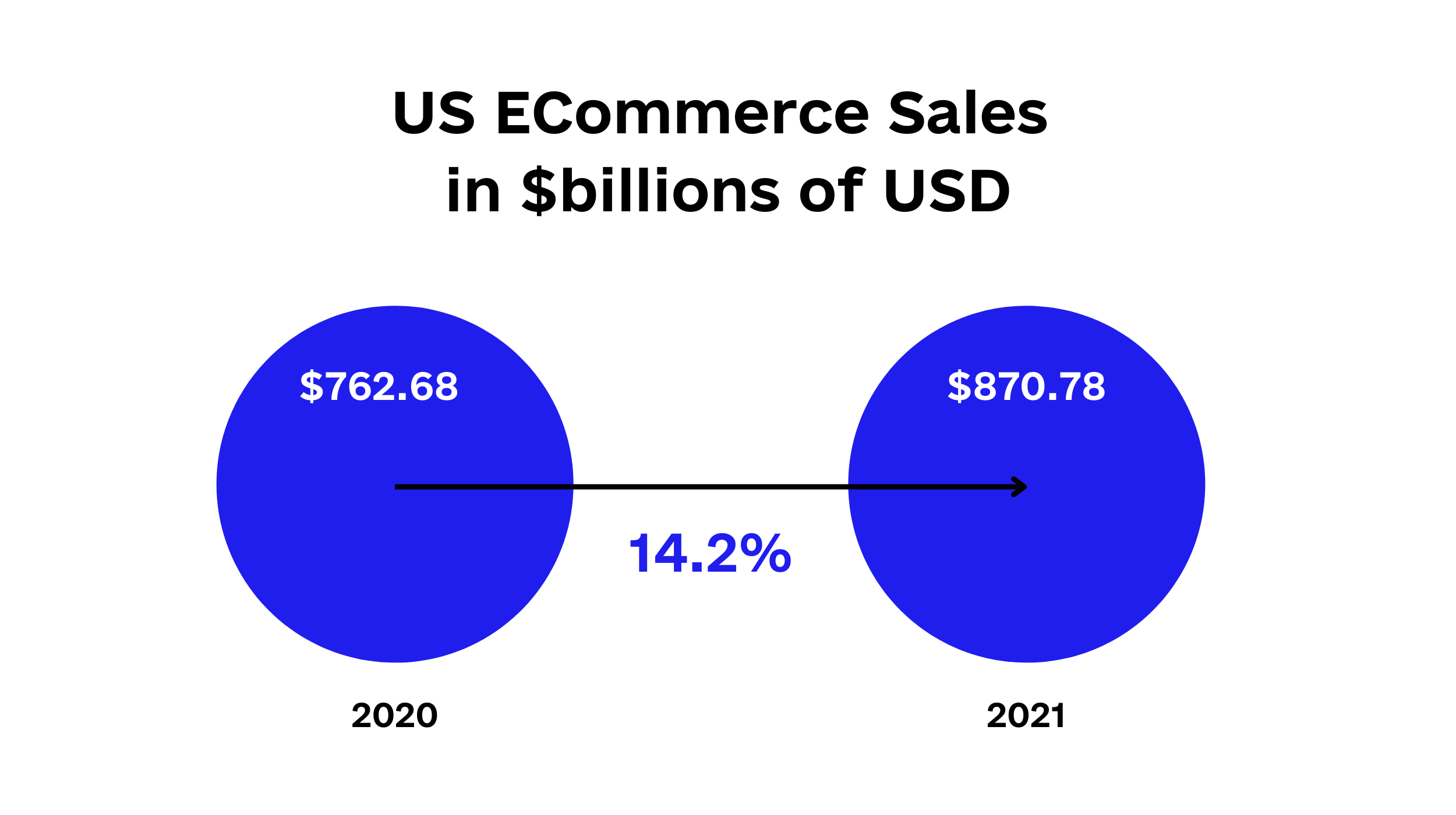
✅ According to Statista, e-commerce retail sales account for over $4.9 trillion globally and are projected to surge to about $7.4 trillion by 2025. Accounting for about 50% growth in sales within the next four years. While this is good news for start-up owners, entrepreneurs, and business owners seekings to launch an e-commerce business, it is important to understand the intricacies of the foundation upon which you will build an e-commerce platform.
Selecting the best programming language for ecommerce site is one of the major pointers to the success of an e-commerce site. While many languages are available, determining the best language for your project may be quite elusive, especially if you are still a novice to programming languages.
👉 In this article, we have compiled a resourceful list of the best languages to help you build a secure and reliable e-commerce website in 2022. Please stay with us as we delve into these languages and their characteristics.
Table of Contents
Benefits of an E-commerce Business
The growth of digitalization has made online presence a key factor that determines the growth and relevance of any business across the globe. While some businesses are interested in giving their business a facelift in the digital space, others are closing up their physical stores and embracing online stores. Below, we will look at some of the key benefits of an e-commerce store to both businesses and individual consumers.
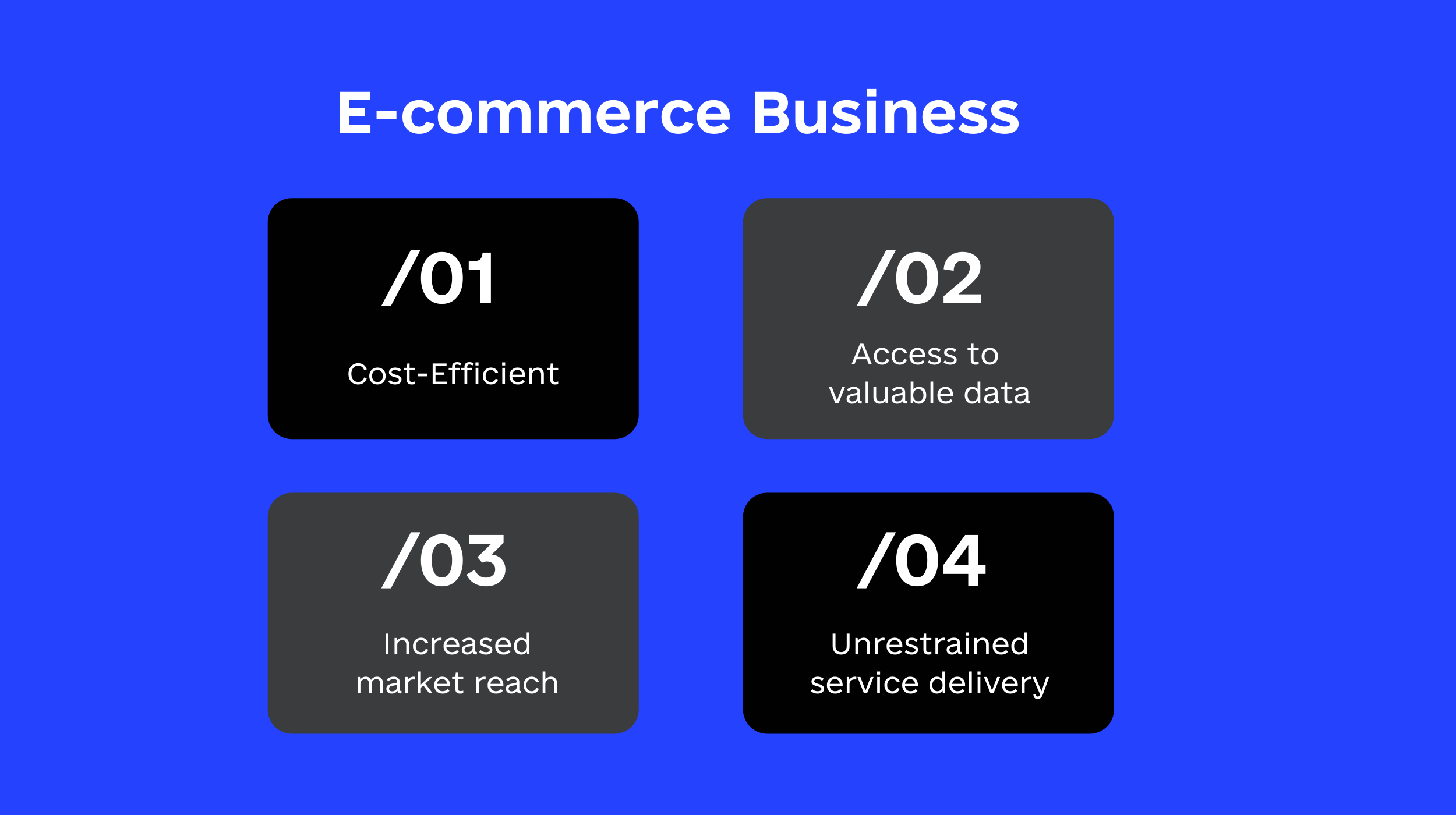
🔹 Cost-Efficient
Running an e-commerce business is much cheaper when compared to a physical store as it eliminates the need to spend a huge amount of money renting a physical store at the right location. Aside from that, it also eliminates the need to pay for other utilities that come with running a physical store.
Since e-commerce stores run on automated computer algorithms, there will be no need to employ multiple employees to manage the systems, thus saving cost in paying multiple employees’ salaries. In addition, the cost of running online marketing using Facebook, Instagram, google shopping ads, etc., is cheaper and more effective than traditional marketing methods. As more overhead costs of running a business are eliminated or reduced, e-commerce owners will be able to make more profit.
🔹 Access to valuable data
Online stores give you access to real-time consumer data that you cannot obtain from running traditional stores. For instance, online shoppers leave behind their names, email addresses, and even contact details, which you can use to create and run personalized marketing. Although in doing this, it is best to be acquainted with relevant Data Protection Laws in your jurisdiction to avoid breaching any.
In addition, consumers also leave behind vital demographic data that e-commerce owners can use to understand consumer behaviors through tools like Google analytics. With these data, you can optimize your e-commerce site to meet your customer’s specific needs.
🔹 Increased market reach
One major disadvantage of a traditional store is its restriction on a business customer base. Depending on your location, customers outside of your geographical bearing cannot have access to your products and services. Running an e-commerce business eradicates these challenges. Customers can access your store from any part of the world without stepping out of their houses. Also, the development in the transportation industry has made it easier to get products to consumers in any location.
🔹 Unrestrained service delivery
E-commerce stores typically run 24/7 operation schedules. The automated system ensures that the sales process is not disrupted and that shoppers can place orders from any location. It also enables you to provide online information to help shoppers navigate your e-commerce store. A potential buyer may simply go to your e-commerce store, find out more about whatever goods they’re interested in, and make purchases. This level of adaptability enhances the potential for profit and lead generation. It also strengthens the bond between buyers and sellers.
What is the best stack for e-commerce?
There are so many programming languages to choose from, and selecting the best one for your e-commerce site will affect shoppers’ experiences and conversation rates. The programming choice for your e-commerce site will ensure you offer your users a convenient and friendly shopping experience while addressing their concerns and needs. Below, we will look at the best programming language for ecommerce website development.
JavaScript
According to Statista, Javascript is the most used programing language by developers across the globe. Javascript is an object-oriented programming language mostly used to create dynamic effects or features on a webpage. It is multi-paradigm, supporting event-driven, functional, and imperative programming styles. It has application programming interfaces (APIs) for working with text, dates, regular expressions, standard data structures, and the Document Object Model (DOM).
✔ The dynamic outlook it gives a webpage, or web application makes it a preferred language for e-commerce development. For instance, if you visit an e-commerce page and you see “click to show toolbar me,” additional features added to an e-commerce site, or constantly changing element colors on a page, that is the work of Javascript. The javascript is the go-to language if you want to bring some life to your e-commerce store. Also, because of the dynamic and object-oriented touch JavaScript affords, 97% of websites use it for developing and optimizing the clientside of a webpage. It is also suitable for server-side coding for your e-commerce site.
Why should you use JavaScript in eCommerce site development?
As the demand for e-commerce stores grows exponentially, online shoppers are beginning to get bored and demand more dynamism and sophistication from e-commerce sites that static web pages could not offer. Implementing Javascript in your e-commerce site makes it easier to design an interactive and dynamic e-commerce website that can improve user engagement and interaction on your platform while also boosting your conversion rate and sales.
In addition, javascript development on e-commerce websites eradicates the need to refresh the entire webpage constantly. For instance, shoppers can click on any of the slides on the slideshow without necessarily refreshing each page, thus improving the loading speed and ensuring a smooth function of the e-commerce site.
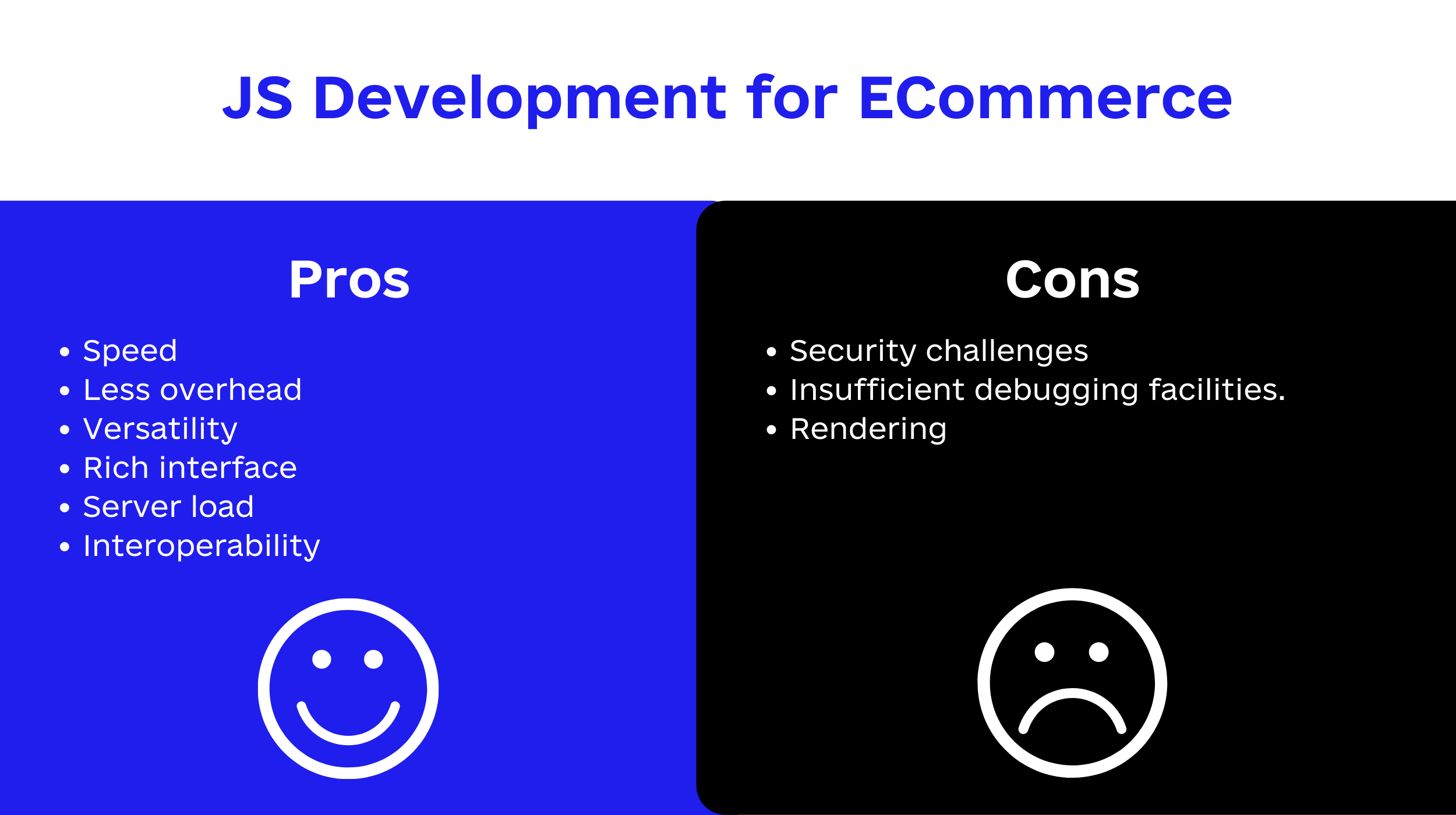
Pros of JS Development for ECommerce
- Speed
JavaScript is an interpreted language; as a result, it reduces the amount of time needed for compilation by other languages like Java. Also, since it is a clientside script and thus increases the speed of execution of a program, thereby reducing the time required to connect to the server. - Less overhead
Building an e-commerce site using javascript, different built-in functions for loos and DOM access, etc., make the code contain less overhead. Thereby improving the overall performance of the site. - Versatility
Another major selling point for Javascript lies in the versatility of the language. You or your developers do not need to learn multiple languages to build your e-commerce site. With JS, you can build both your site’s front-end and back-end. While you deploy Node.JS for back-end development, you can use libraries like Angular and react JS for front-end development. - Rich interface
Every e-commerce owner does not just want a static web page void of life, which could negatively impact shoppers’ activities on the site. Using JS will help your developers create an intriguing and dynamic interface for your e-commerce store, thus improving shoppers’ interaction with your platform. for instance, drag and drop components or slides greatly improve the site’s interface. - Server load
The use of JS on the client-side makes it feasible to validate data on the browser rather than on the server. In the event of any inconsistency in codes, you only need to update the selected webpage instead of the whole website. - Interoperability
JavaScript can work with any other programming language without hitches. This comes in handy when you want to add the spices other languages offer to your e-commerce site.
Cons of JS Development for ECommerce
- Security challenges
Since a user can access and view the codes from the site, it makes the site prone to malicious intent. Users can use the code without authentication. Also, it is easy to plant malicious codes to destabilize the site’s integrity. - Insufficient debugging facilities
The editors on JS do not have efficient debugging facilities, especially when compared to editors in C/C++. Also, errors do not appear on the browser, making it hard for developers to fish out problems. - Rendering
On JS, it takes one code error to halt the rendering of the whole JS code on site. But then, the browsers do not react harshly to these code errors.
PHP
PHP has made it to the list of programming languages striving greatly in the tech-savvy world – especially for e-commerce websites. In a comprehensive announcement by Redmonk ranking reports, PHP was featured as the fourth most used programming language globally. If it weren’t that efficient, global businesses like Facebook and WordPress wouldn’t be utilizing it as the core language for their online businesses.
Reasons to Use PHP in Ecommerce Website Development
- Secure Financial Transactions
Ecommerce websites deal with a lot of finance and sales. An insecure website would put a lot of finance and customer details at risk. PHP provides a secure platform for e-commerce transactions. - Great customer Interface
PHP allows you to customize your e-commerce website in a user-friendly way. Hence, making it acceptable to attract customer traffic. - Outstanding features
Most of the features that make PHP outstanding include:
– Flash features for new banners.
– Libraries and frameworks for recreating more customized features for your website.
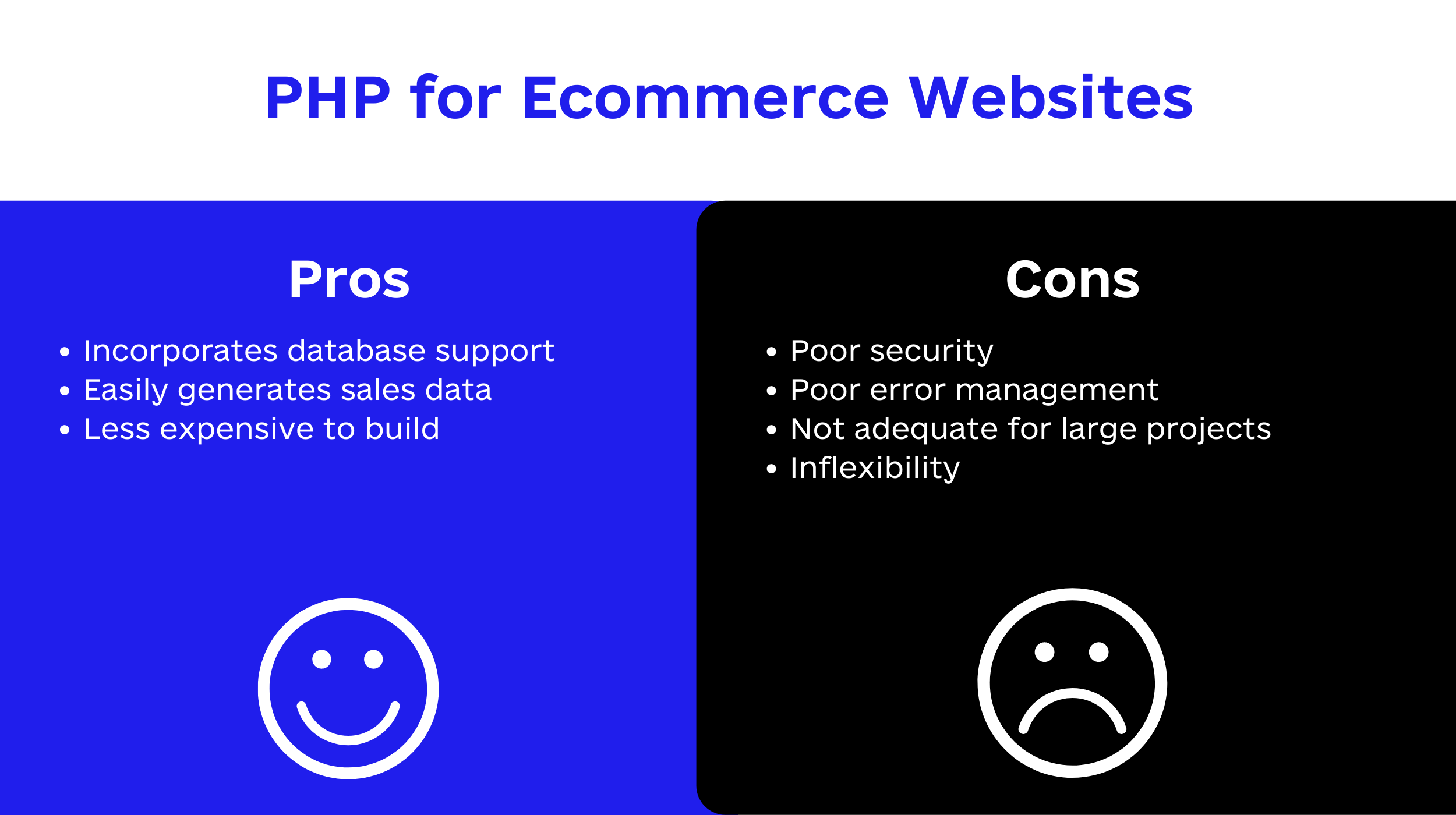
Pros of PHP for Ecommerce Websites
- Incorporates database support
With PHP, you don’t need drivers. It has an incorporated database support system that runs effectively. An example is the popular MYSQL. - Easily generates sales data
With PHP, you can generate sales data from your e-commerce website easily. You wouldn’t have to go through the manual filing of data. It saves time, cost, and energy. - Less expensive to build
With PHP, there is no need to build from scratch. You can use prepared codes and customize them to suit your website needs.
Cons of PHP for Ecommerce Websites
- Poor security
PHP has a weak security system because it is largely open-source. It is more prone to cyber-attacks, making it unsafe for e-commerce financial transactions. Customer financial data is at risk too. - Poor error management
Debugging tools are necessary for easy error identification and management when coding. However, the PHP framework lacks this tool. - Not adequate for large projects
The PHP language is a growing space. It currently cannot handle huge intensive projects. Often, it might hang on the journey. - Inflexibility
The PHP framework is not easily modified. It also has some predetermined way to follow, and not following it might lead to more complications.
Python
According to PYPL programming index, Python has been tested and proven to be the most popular language for coding reliable, secure and effective websites. Python includes a built-in system for controlling “access controls” to modules, packages, classes, and functions.
✔ Python offers a slew of access control mechanisms to choose from, including the possibility to create your own. It also enables you to keep what you need to watch private while allowing more open access where it’s appropriate. If you are thinking of building a customized e-commerce site with designs and functionalities of your choice, you may want to look at python language. With this language, you can develop an e-commerce site that is dynamic, user-friendly, and quite spontaneous.
Python’s focus on efficiency, readability and excellent compatibility across databases make it one of the developers’ most preferred choices when tackling huge e-commerce site projects.
In addition, Python’s language syntax is quite simple. Hence using it doesn’t require complex coding skills.
Why should you use Python in eCommerce site development?
If you are considering developing your e-commerce website and wondering why you should consider Python as your preferred language, here are some reasons to help you:
- Python helps you build a customized e-commerce site that is very secure
- Python improves the scalability of your site
- Python boost of excellent support
- Python programming language is quite flexible and offers a wide range of functionalities. Its flexibility allows developers to choose the design patterns of their choice.
- Python is a beginner-friendly language that doesn’t require serious technicalities to pull off.
- E-commerce sites built with Python are easy to maintain
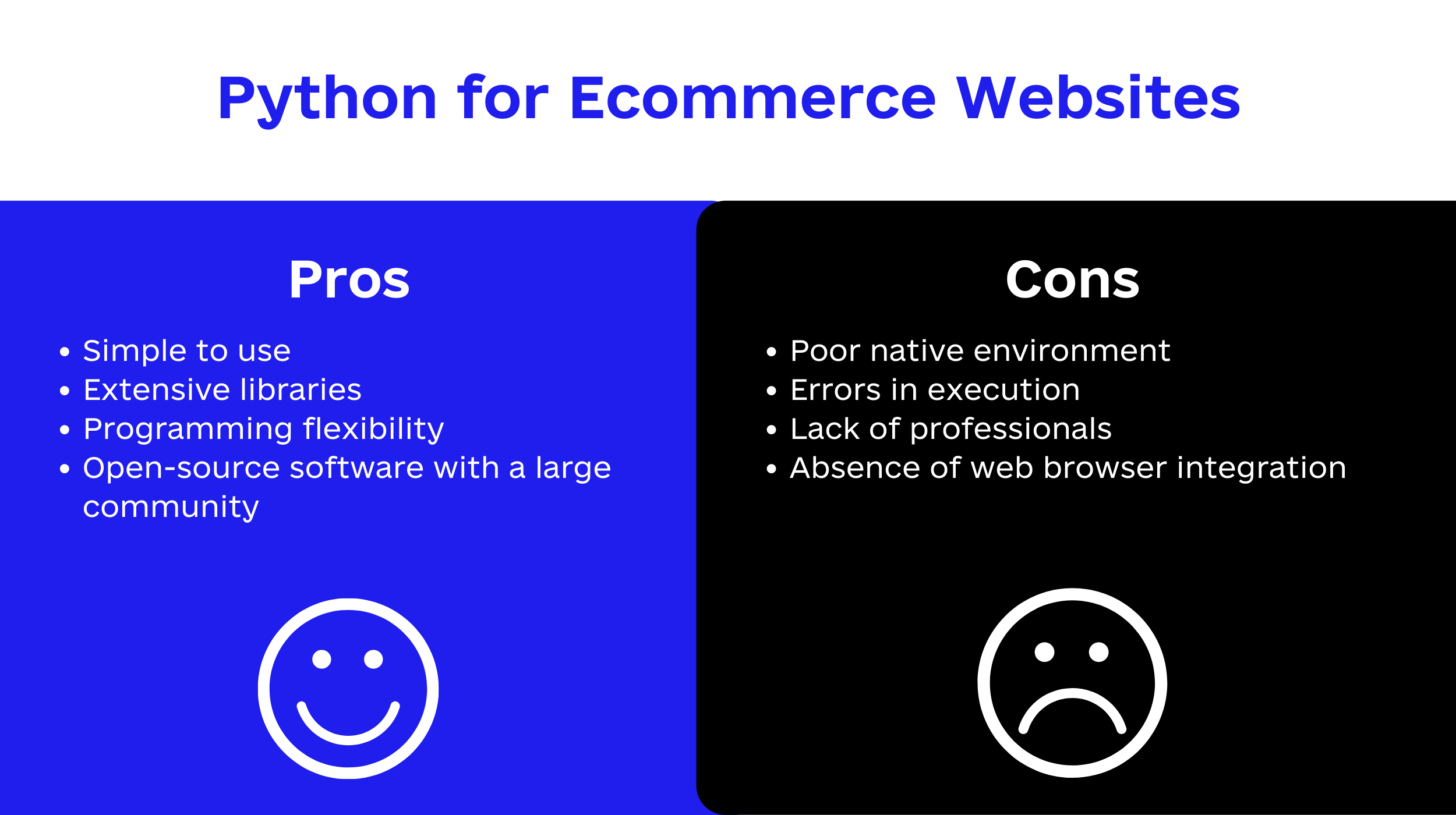
Pros of Python for ECommerce
- Simple to use
Python is quite readable and closely resembles the English language. Python programmers benefit from its simple and easy-to-understand syntax, minimizing coding complexity.
It simplifies the entire Python web development life cycle by making it easier to grasp the relationships between distinct objects. Python web development also allows for an easy visual representation of data via charts and graphs. Developers can quickly plot data on graphs to gain better insights. It enables online-based businesses, especially e-commerce owners, to develop clear reports and thoroughly understand any errors found in those reports. - Extensive libraries
One of the key advantages of the Python programming language lies in its large pool of development libraries. String operations, web service tools, operating system interfaces, scientific programming, statistics, and computing are all covered by its libraries.
Developing your e-commerce site with python language offers various packages that allow the site to scale. It cuts down coding time and allows Python programmers to reuse code in future projects. - Programming flexibility
Python does not have a standard setup and focuses on developer adaptability. Python is a dynamic programming language with clear code that gives programmers the most freedom.
Python enables a simple text-like development environment, making it the ideal choice for web development. Its flexibility and rich features make developing an intuitive e-commerce site easier. - Open-source software with a large community
Python is an open-source language. It’s free and gives you access to the latest updates from the community. Python’s code is often updated, allowing Python programs to gain new capabilities. Also, the language boasts of a large community of developers. And the figure continues to climb as more developers become conversant with building intuitive websites and applications with Python. The Python community is always eager to help developers respond quickly to difficulties and offer aid on other projects.
Cons of Python for ECommerce
- Poor native environment
Python does not play well with the mobile operating system’s basic components. As a result, it’s regarded as a sluggish programming language for mobile apps. Considering that most online shoppers access e-commerce sites from their mobile devices, this may pose some challenges to the e-commerce platform. - Errors in execution
Python is a dynamically typed programming language; therefore, run-time errors are possible. Because Python programmers don’t have to declare variable types, the design problems are far more difficult than you might assume. The designs should be based on what the Python code says.
Text coding appears to be simpler, yet it results in more run-time mistakes. The extreme simplicity of Python web programming is also a disadvantage for developers. However, if you are organized and resourceful, you may easily use this to your advantage. - Lack of professionals
One of the most common drawbacks of Python web development is a scarcity of experienced programmers. Although a simple programming language, it demands creativity and effort to master. In comparison to JavaScript, only a few Python programmers in the industry have specific abilities and knowledge of the language. As a result, it may be hard to find a python developer that can bring your desired e-commerce site to life. - Absence of web browser integration
Python web development uses a lot of bandwidth and is slow, so it’s not compatible with most browsers. Python does not allow operating in a web browser, and attempting to do so may slow down code execution. The database layers in Python are likewise undeveloped. As a result, it is not often used in major organizations with large database requirements.
Django
Django is a high-performance python web framework that gives access to already written code to build clean, pragmatic websites. With Django, coding from scratch is extinct. All you need is access to its prepared framework, and with that, you can twist it to suit your e-commerce website options.
Reasons To Use Django in Ecommerce Website Development
There are many benefits to utilizing Django as your open-source option. Little wonder top global companies like Instagram, NASA, Spotify, and a few others choose it as the best option to drive the level of traffic needed for their global businesses.
- Speed and Simplicity
In the open-source space, speed and simplicity tag along. You can easily customize a simple framework into an e-commerce website quickly. Compared to Lavarel , Django’s framework is easy to navigate. The framework can come in several forms. A good example is Oscar, Saleor, and Django SHOP. However, you should choose Django Oscar because it is already structured to look like an e-commerce website compared to other options available. Customizing it is also very easy. With Django Oscar, your website will be ready for the e-commerce market sooner than using other website options. Once it’s ready, the framework’s simplicity can easily help customers navigate your product’s space. A less complex product space often translates to more traffic and more sales for your business.
- Security and reliability
In the open-source platform, reliability is a function of customer-proven results over a long period. Django enjoys this advantage. First, it has a very fast processing speed. If you want to avoid poor customer feedback when loading product catalogs, generating an invoice or making payments, Django Is the language to choose. It is always up and running and delivers on time. Second, it is programmed to detect malfunctions or web attacks easily and provide a natural defense. It’s not enough to build a website; it’s about how strong the website is against cyber attacks. Normally, the Django framework is protected against insecurity options like clickjacking, cross-site scripting, and SQL injection. Customer feedback has also provided that the framework is strong and provides all the right defenses.
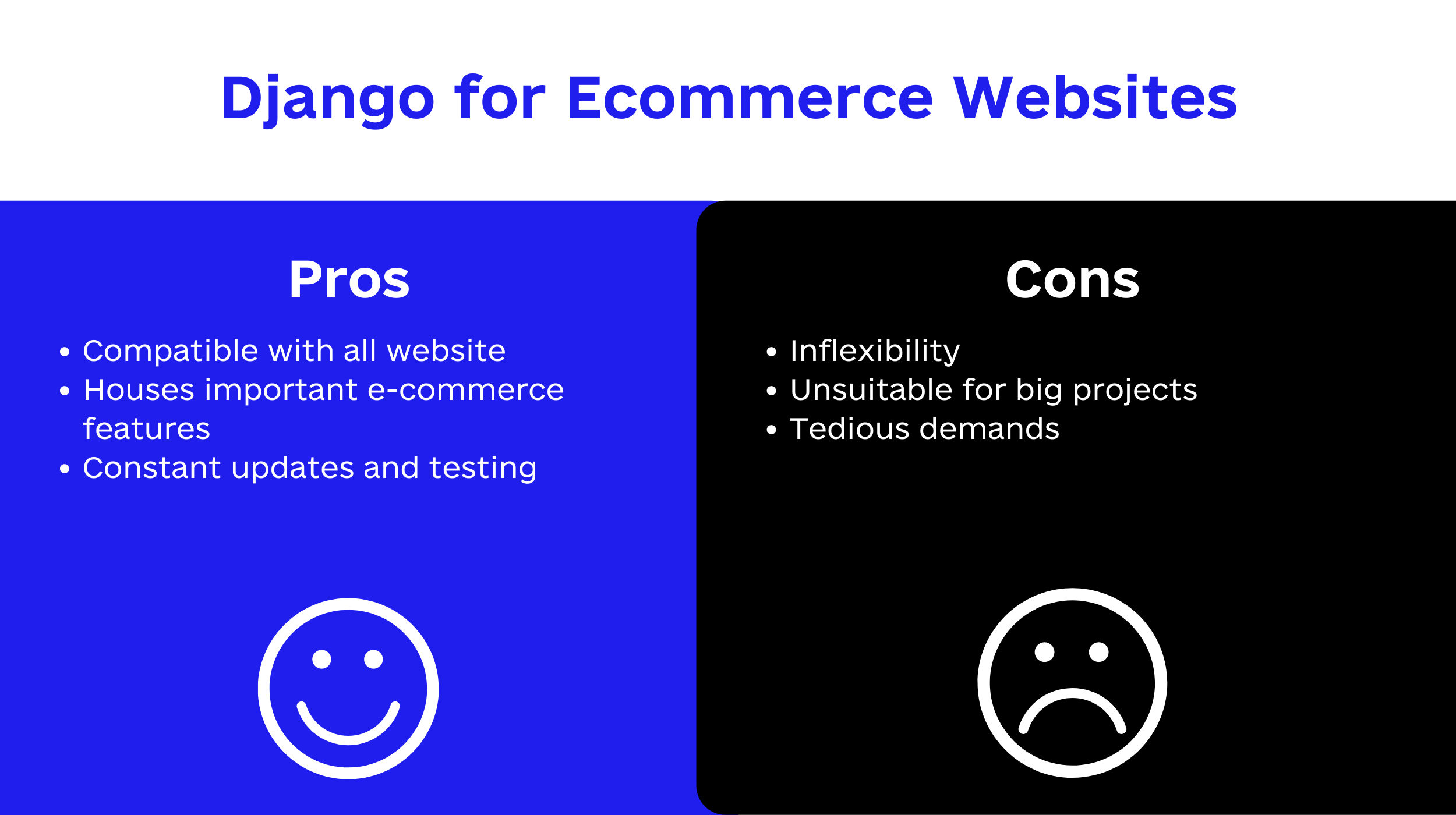
Pros of Django For Ecommerce Websites
Here are a few advantages and disadvantages of using Django. This can help you choose how best to incorporate it into your business.
- Compatible with all website
One important factor to look out for as an e-commerce owner is whether the website option is scalable. It’s not about where your business is today; you need to consider the future. Business development is the dream of every e-commerce business owner. If your business grows and you would love to upscale your product catalogs or services, Django helps you scale within the same framework. You do not have to start building a new website. Even if you witness a little setback and desire to downscale your business, you can do so within the same framework. This option saves cost and time and still retains security and reliability. - Houses important e-commerce features
Your website features will distinguish your e-commerce website from every other business. There are core features every e-commerce business should have to stand out competitively. Django Oscar holds most of these features. They include:
– Built-in Admin
– Shopping Carts
– Good product display
– Multiple international currency options and gateways.
– Multiple languages to shoot different geographies.
– Easily downloaded invoices in pdf file.
– Complicated order processing
Django grants access to these outstanding features and even more. - Constant updates and testing
The e-commerce space is evolving. A website that reflects good user knowledge should reflect these evolutions. This is exactly where the Django website is supported by channels, communities, forums, and websites that validate its user’s experience. To back up this testing, it also enjoys constant updates in line with the feedback from its communities. These updates help your website stand competitively all within the same framework.
Cons of Django for ECommerce
- Inflexibility
One major disadvantage is that it has one popularised way one has to follow. The opinions are strong and static. - Unsuitable for big projects
Big projects thrive more with Django. Mainly big companies have outsourced it, so its default templates are too complex for small businesses. - Tedious demands
The URL specification option of Django is tedious to meet. It might be a unique feature, but developers know it has some default implications.
How to choose the right programming language for eCommerce website development?
Naturally, we are more inclined to select a programming language that best resonates with our business goals and requirements. While this is an important consideration, it may not be enough to get the job done. For you to arrive at the language best suited for your e-commerce site, you must consider the following point:
- Security: choose a programming language that has strong security features as you wouldn’t want a situation that endangers your clients while shopping on your platform
- Compatibility: Ensure that the language is easily compatible with other programming language frameworks and databases supporting the client-side script.
- Flexibility: choose a programming language that offers adequate flexibility to customize features to help your e-commerce site stand out.
- Scalability: ensure the framework you are adopting can increase workload without impeding the site’s performance.
- Reliability: choose a programming language that has industry recognition for reliability
- Community Support: ensure that the language has a strong community of developers. This will come in handy if your team of developers encounters some difficulties while building your project.
Wrapping up
Notwithstanding the plethora of programming languages available at your disposal, adopting a language that best represents your business vision is key to standing out in the ever-competitive e-commerce sector. Therefore, in adopting a programming language, do not restrict your decision criteria to business requirements. Ensure that the stack you are adopting is flexible, secured, has a good support community, and is compatible with other frameworks.
If you are unsure of how to get started in developing your e-commerce site please get in touch with us here. We will be glad to share our knowledge and expertise with you!
Read more:
A Definitive Overview On Technology Stack for Mobile App Development
Web Application Development Issues You Can’t Ignore in 2022 [Threats & Challenges]
Cross-Platform Mobile Development: Advantages and Disadvantages [A Complete Guide]
Web Application Development Issues You Can’t Ignore in 2022 [Threats & Challenges]




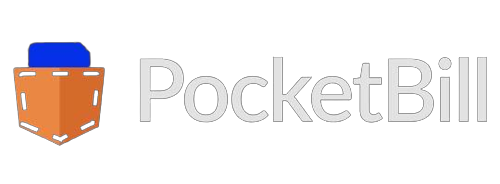



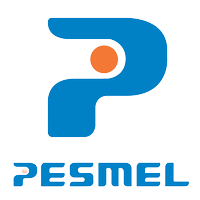

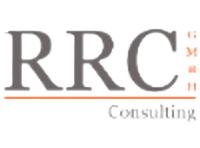





Popular
Latest